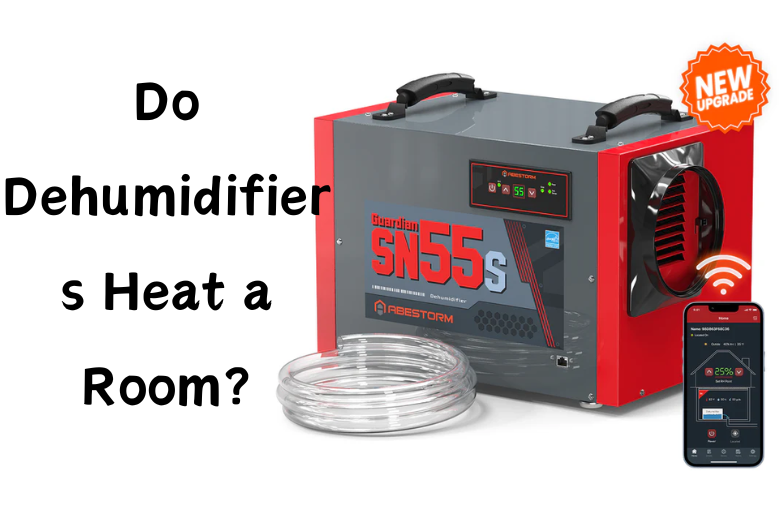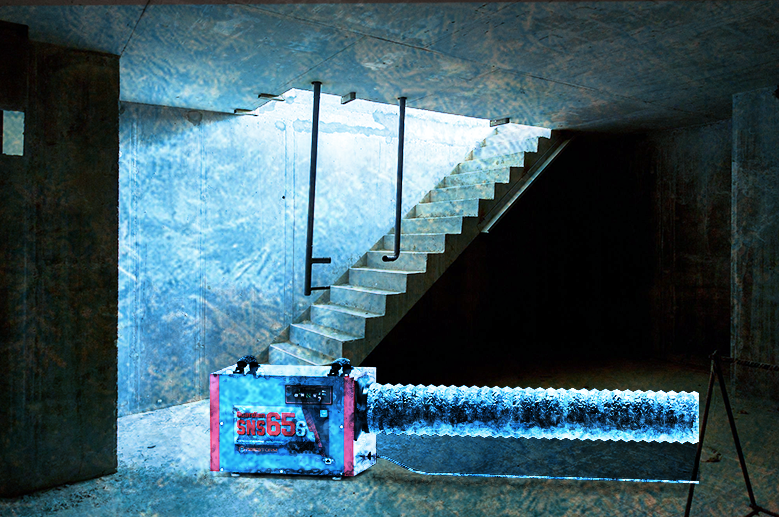Dehumidifiers are designed to control humidity. But do they heat a room? Yes, a smart dehumidifier produces a barely noticeable amount of heat while operating. However, most users don’t feel it because the temperature change is too small to detect, or the room feels cooler as the moisture is removed.
If the temperature change is significant, there might be other factors contributing to the heat. Therefore, you need to identify these factors to address the heating issues. Sometimes even the best dehumidifier can heat your room if you fail to use it correctly.
Let’s explore how a typical dehumidifier works, why it heats a room, and how you can improve its efficiency.
What Does a Dehumidifier Do?
The primary function of a dehumidifier is to remove moisture from the air in any space. High humidity levels in your indoor air can lead to mold growth, discomfort, and structural damage. Such problems are common in spaces such as basements, bathrooms, and crawl spaces.
A dehumidifier removes excess moisture from the air, helping to maintain a healthier and more comfortable environment. There are different types of dehumidifiers, each designed to address specific conditions. A basement dehumidifier with a pump is designed to fix high humidity in basements.
Similarly, a whole-house dehumidifier works with the HVAC system to remove moisture from the entire house.
How Does It Work?
Here’s how a typical air dehumidifier works:
- First, it pulls in warm air from the surroundings using a fan.
- Next, the air passes over cold coils inside the dehumidifier.
- As the warm air hits the cold coils, it condenses into water droplets.
- These droplets are then collected in a water tank or drained through a system.
- Finally, the dehumidified air is released back into the room.
- This cycle repeats until the air is thoroughly dehumidified.
Do Dehumidifiers Heat Up a Room?
The short answer is yes. A dehumidifier can heat up a room but you can barely feel it. This is because the air is reheated after it’s dehumidified before it’s recirculated back into the surroundings.
The main primary purpose of a dehumidifier is to deal with moisture. But, it creates some heat as the byproduct of the dehumidification process.
Generally, in large and well-ventilated spaces, you don't feel the heat at all. However, in small spaces, you may notice it, particularly after prolonged use.
To avoid potential inconveniences, homeowners are advised to choose a whole-home dehumidifier instead of a portable one.
It is important to note that the heat is too minimal to notice. If there is a significant increase in heat, something unusual may have happened with your unit. You need to fix this to prevent potential damage.

Why Does a Dehumidifier Heat Up a Room?
Here are a few reasons why your dehumidifier heats your room:
- Choosing the wrong unit
Choosing the right unit for the right space is extremely important. If you use a standard portable dehumidifier to fix humidity in a space with extremely challenging conditions, it may not produce the desired outcome. Rather it ends up heating up the space.
For instance, you need a commercial-grade dehumidifier with a pump to remove moisture from a large basement. A regular unit won’t be sufficient to address the challenges of a large basement.
- Poor ventilation
If you keep running the dehumidifier for an extended period in a space with very poor ventilation, it starts heating up the space.
- Lack of regular maintenance
Regular maintenance is key for your dehumidifier to function properly. Lack of proper maintenance not only reduces its efficiency but can also potentially damage the device. You should regularly change the dehumidifier filter and clean the coil and other parts of the unit. Otherwise, dirt and dust can accumulate inside the unit, especially around the coils, causing it to produce more heat.
How to Improve the Efficiency of a Dehumidifier?
It’s highly recommended to use your unit efficiently to get the most out of it. If you use it correctly, it will treat humidity effectively without heating your room.
Here are some key ways to optimize the performance of your air dehumidifier...
- Choose the right size
Choosing the right size is important for better performance. Choosing a dehumidifier that is either too small or too large for a specific space can result in additional heat in the room. For instance, if you use a strong commercial dehumidifier in your bedroom, you might feel more heat in the room.
- Clean your unit regularly
You need to clean your unit both internally and externally regularly. Regularly check the dehumidifier coil and filter, and clean the coils to prevent dirt buildup. Otherwise, the unit will have to work harder, which can cause it to heat your room.
- Ventilate your space
Ventilation is important. So, keep the windows or doors open for some time if possible.
- Position your unit properly
Position your machine in an area that allows air to circulate freely without any obstructions.
- Use your unit moderately
Don’t overuse the machine. Turn it off when it’s needed. Running a dehumidifier constantly for longer periods can lead to extra heat buildup in your space.
Conclusion
A dehumidifier can naturally add some heat to your room, but usually, you don’t feel it. This is because it makes the environment more comfortable and fresh. That said, you might notice an unusual increase in room temperature.
This can happen for various reasons, including malfunctioning or inappropriate use of the unit. Therefore you need to be careful when choosing a dehumidifier for your space.
Need help finding the best air dehumidifier for your room? Don’t hesitate to contact us today. At Abestorm, our dedicated team helps our valued visitors and customers like yourself find the best solutions for their needs.









Shop For Dehumidifier